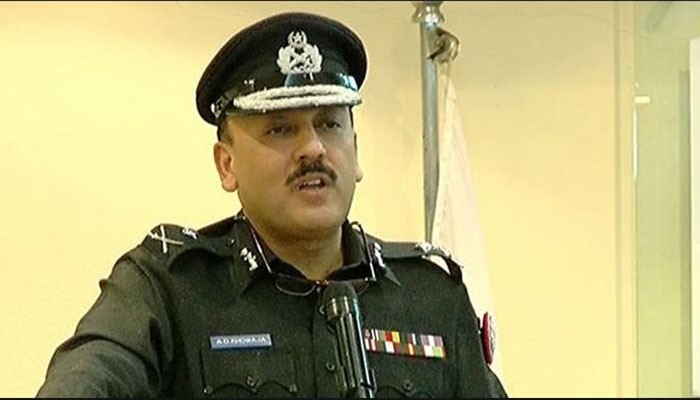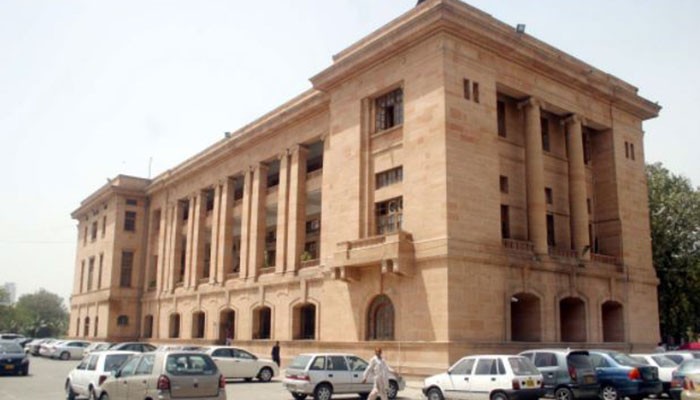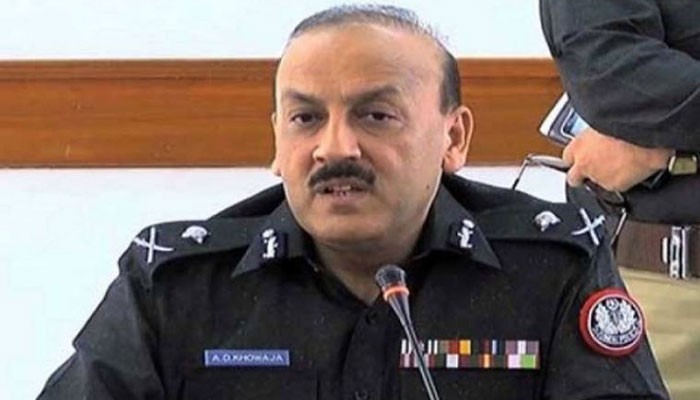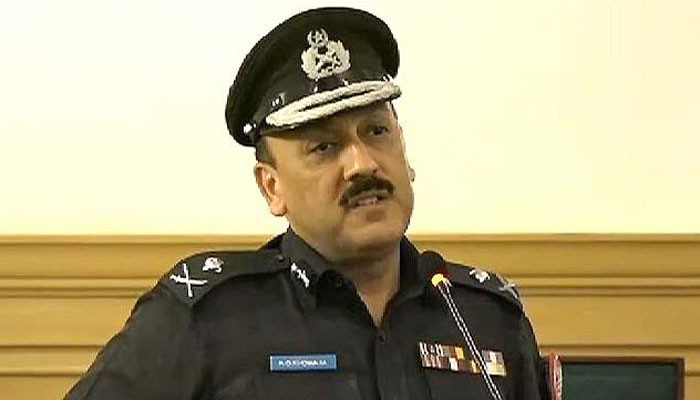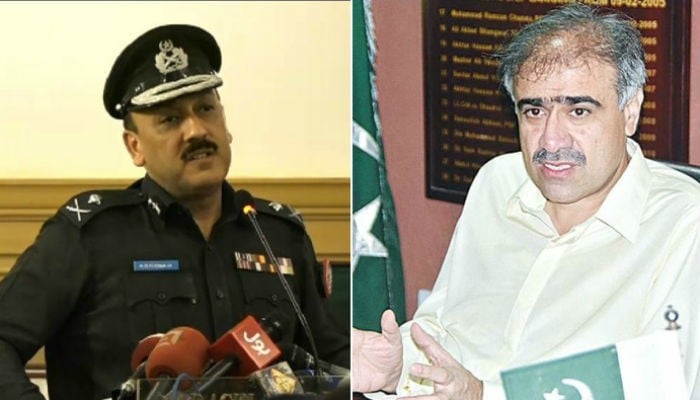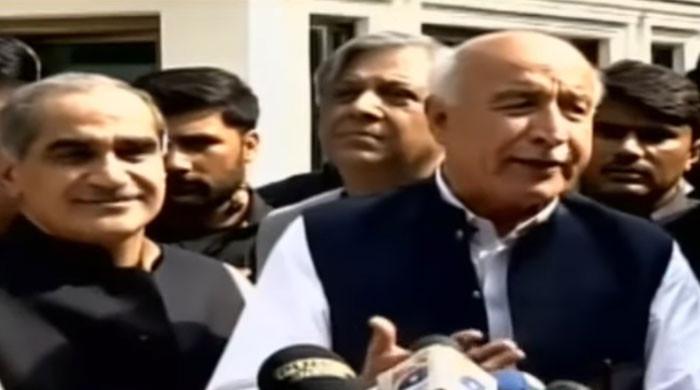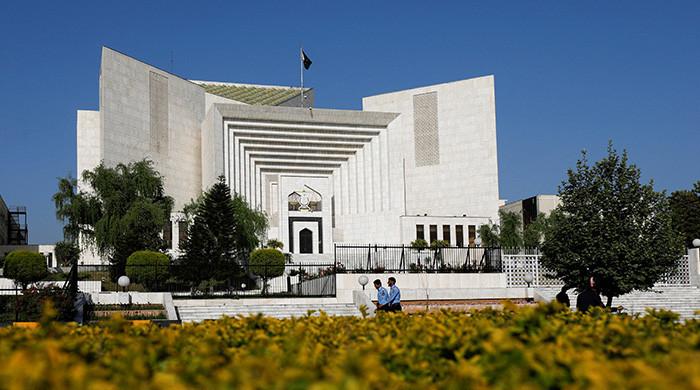Sindh IG AD Khawaja to continue on post, rules SHC
IG AD Khawaja had been removed by the provincial govt earlier this year
September 07, 2017
KARACHI: The Sindh High Court (SHC) on Thursday dismissed the provincial government's order removing Inspector General AD Khawaja and ordered that he will continue on his post till his due term.
The two-judge SHC bench, headed by Justice Muneeb Akhtar, had reserved its decision in the case challenging Khawaja's removal on May 30.
The court, on April 3, had dismissed the provincial government’s decision to remove the Sindh police chief after a group of activists approached the SHC challenging his controversial removal.
In its judgment on Thursday, the court also declared all postings and transfers carried out in the province after July 7 as illegal.
The judges observed that the complete command of the provincial police remains with the IG and that anyone found taking orders from elsewhere may be proceeded against by the police chief.
Moreover, in its verdict, the court directed the federal government to draft rules regarding the tenure and appointment of the IG.
The court, termed farcical the “rapid turnover in, and bewildering rapidity with which, postings and transfers are made in the police force at all levels” and observes that this is wholly inimical to the stability of, and any meaningful performance by, the police.
The judgment also presses for an end to “outside interference, whether by the Provincial Government or any body or authority thereof or otherwise (including any minister of any rank)..”.
With regards to the sidelining of the provincial police chief, the court held that any attempt to sideline or marginalise the IG or circumvent him or to otherwise curtail his powers would be contrary to law. “It could, among other things, expose any police officer concerned to appropriate disciplinary or other proceedings, whether by way of misconduct or otherwise,” the court observed, stating additionally that the command structure of the police hierarchy is clear: It flows from, to and through the IG. “There can be no autonomy of command, nor independence of operation without this.”
The court also declared that the Sindh (Repeal of the Police Order, 2002 and Revival of the Police Act, 1861) Act, 2011 is intra vires the Constitution, and that therefore the Police Act, 1861, as revived and restored by the said act is the law in force in the province and not the Police Order, 2002
Concluding its judgment, the court observed that police reforms are an ongoing exercise and may be touched upon later in other petitions.
“However, even if this judgment proves to be but one link in that chain, it is hopefully a step in the right direction (if we may mix metaphors a bit).”
The petitioners, which included Pakistan Institute of Labour, Education and Research head Karamat Ali and singer/activist Shahzad Roy, were represented by Advocate Faisal Siddiqui.
Talking to the media, he said the SHC decision is the first step towards reforming the police in the province.
In his comments after the verdict was announced, Sindh Additional Advocate General Mustafa Mahesar said the government will challenge the verdict in the Supreme Court after consultation.
In April, the Sindh government had removed the IG and replaced him with an officer already posted in the province.
The Sindh government did not take the federal government on board and appointed another officer without waiting for the Establishment Division to appoint a new police chief.
In one of the case's hearings, the IG had offered to leave his post, saying his job had become increasingly difficult under the present circumstances.
However, the court refused to let Khawaja relinquish his post and maintained its stay on his removal till the case was being heard.
Sources had confirmed that the provincial government was at loggerheads with Khawaja as he was not 'their man'.
With the recent reappointment of Sohail Anwar Sial as the home minister, a clear divide was witnessed between the home department and the IG's office.
